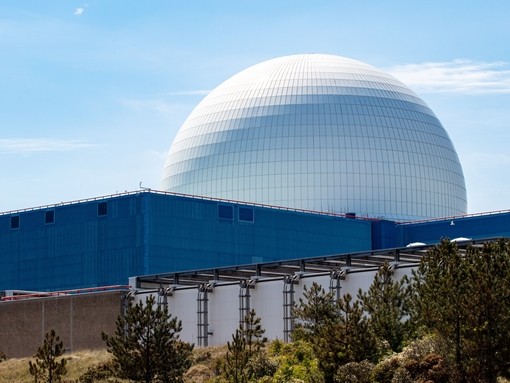
With continuous investment in infrastructure and a variety of high profile projects to choose from, there are excellent steel fixer jobs in the UK construction industry for steel fixers at all levels.

Keep reading to find out more about the skills you’ll need and discover whether a steel fixer job is the right fit for you.
RATES
£8-13 per hour
HOT SPOTS
Hinkley Point C / HS2
QUALIFICATIONS
NVQ, City & Guilds
What do steel fixer jobs involve?
Steel fixers install and tie together steel bars and mesh in reinforced concrete in order to strengthen and secure buildings and other large structures during construction. You’ll need to decide where steel is needed and work out the required size, shape and number of reinforced bars. You’ll often need to utilise machinery and tools, including cutting and bending equipment, to help fit the bars in place.
Steel fixers can work on a variety of different projects, but will usually find themselves working on industrial and commercial developments, high-rise housing, tunnels and bridges.
What is a steel fixer’s salary?
The average salary for a steel fixer can vary depending on the location, scale and nature of the project, as well as from employer to employer. You can expect a starting salary of between £14,000 and £18,000, rising up to anywhere between £20,000 and £30,000 as you gain experience.
The most highly experienced steel fixers can often make up to £35,000 per year. If you’re self-employed, you have the opportunity to set your own pay rates.
These figures are intended as a guideline only.
What skills do I need?
You’ll need a good eye for detail and the ability to follow engineering instructions and technical charts and diagrams. Good maths skills are necessary to work out and follow precise measurements.
Steel fixer jobs are physically demanding work, involving heavy-lifting, bending and working at heights. Because of this, it’s important to have a high level of physical fitness. You’ll use a variety of hand and power tools, as well as machinery, so you’ll need practical skills and good hand-eye coordination. You should also be equally confident working both on your own and as part of a team.
What qualifications do I need?
There aren’t any formal entry requirements to become a steel fixer, with many starting their careers in entry level roles, like a ‘nip hand’ helping out on a building site to gain experience.
To progress further, you can undertake an NVQ level 2 in Steel Fixing Occupations or City and Guilds 2455. These qualifications cover the basics of steel fixing, teaching you how to cut, shape and install steel, as well as covering the basics of using power tools and safe working practices. Alternatively, you can undertake a steel fixing apprenticeship, giving you the opportunity to earn while you learn.
You’ll need to apply for a Construction Skills Certification Scheme (CSCS) competency card if you plan to work on a construction site.
What are the hours and conditions?
You can expect to work a 40-hour week, Monday to Friday. However, you’ll sometimes be required to work overtime on evenings and weekends to meet deadlines, as and when the project requires it. Potential overtime pay gives you an opportunity to boost your earnings. As with most on-site work, your day will usually start at dawn.
The majority of your work will take place outside and in all weathers. You’ll be working on-site, so can expect some travel and time spent away from home.
You’ll spend a lot of time working at height, and will need to wear protective items, such as helmets, ear-defenders, boots and hi-vis clothing.
Career progression
With time, experience and training, there are a number of opportunities for career progression. You could move into a senior, supervisory role, or train to become an engineering technician. If you fancy working for yourself, you can become a freelance steel fixer, or look to set up your own business and employ others.
















